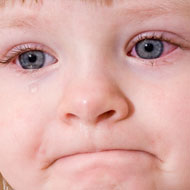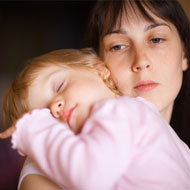- Toddler Measles Symptoms
- Toddler Flu Treatment
- Toddler Flu Symptoms
- Toddler Stomach Flu Symptoms
- Toddler Hair Loss
- Toddler Urinary Tract Infection Symptoms
- Toddler Tonsillectomy Recovery
- Toddler Periorbital Cellulitis
- Toddler Vomiting and Diarrhea
- Types of Toddler Vomiting
- Toddler Vomiting Treatment
- Toddler Cough Vomit
- Toddler Dandruff
- Toddler Bowlegs
- Toddler Eye Infection
- Toddler Pink Eye
- Toddler Pink Eye Symptoms
- Toddler Hearing Loss Signs
- Symptoms Of Pinworms In Toddlers
- Toddler Blood Infection
- Toddler Mononucleosis
- Toddler Motion Sickness
- Toddler Labial Adhesion
- Lyumphoma in Toddlers
- Toddler Scabies
- Toddler Pinworms
- Toddler Insect Bites
- Toddler Meningitis
- Toddler Moles
- Toddler Lyme Disease
- Toddler Nosebleeds
- Toddler Ingrown Toenail
- Toddler Lead Poisoning
- Toddler Hair Loss Alopecia Areata
- Toddler Heat Stroke
- Toddler Rubella
- Toddler Tonsillectomy
- Toddler Iron-Deficiency Anemia
- Toddler Tooth Discoloration
- Toddler Concussion
- Toddler Psoriasis
- Toddler Sunburn
- Toddler Tongue Blisters
- Toddler Impetigo
- Toddler Blepharitis
- Toddler Burns
- Toddler Burn Treatment
- Toddler Eczema Face
- Toddler Eczema Symptoms
- Toddler Urinary Tract Infection
- Toddler Boy Urinary Tract Infection
- Toddler Epilepsy
- Toddler Epilepsy Symptoms
- Toddler Walking Pneumonia
- Toddler Yeast Infection Symptoms
- Toddler Frostbite
- Toddler Hand Foot And Mouth Disease
- Toddler Dry Scalp
- Toddler Dry Skin
- Toddler Strep Throat
- Toddler Strep Throat Symptoms
- Toddler Sore Throat
- Toddler Mumps
- Toddler Bacterial Infection
- Shaken Baby Syndrome
- Shaken Baby Syndrome Symptoms
- Toddler Tonsillitis
- Toddler Eye Discharge
- Toddler Fifth Disease
- Toddler Febrile Seizures
- Toddler Food Poisoning
- Toddler Gingivostomatitis
- Toddler Stomach Ache
- Toddler Warts
- Toddler Tuberculosis
- Toddler Torticollis
- Toddler Tick Bites
- Toddler Ear Infection Remedies
- Toddler Ear Infection Symptoms
- Toddler Ear Infection Signs
- Toddler Concussion Signs
- Toddler Bronchitis
- Toddler Colds
- Toddler Chicken Pox
- Toddler Appendicitis
- Toddler Asthma
- Toddler Birthmarks
- Toddler Strabismus
- Toddler Wheezing
- Toddler Sprains
- Toddlers Tinea Versicolor
- Toddler Viral Infection
- Toddler Yeast Infection
- Toddler Hives
- Toddler Canker Sores
Signs of Eye Problems in Toddlers & Remedies
Toddler eye problems most often crop up in children who are born into families with vision disorders, but that does not leave the general population unscathed. Most doctors will recommend that you get you toddlers vision checked when they are just about six months old.
Eye problems in toddlers are difficult for a parent to pin point because early in life, toddlers and younger children are unable to express themselves freely. As time goes by and your child's vocabulary grows, it is much easier for him to tell you how he feels and whether he needs help.
Toddler Eye Problem Symptoms
One of the most common problems that children suffer from is lazy eye. Though a child is unable to tell you that the movement of his or her eyes are not coordinated it is not difficult for you as a parent to watch eye reactions of a toddler. Children love to watch moving objects and their eyes will follow anything that moves before them. If you notice that one eye of your child does not react as quickly as the other, you need to take him in for an eye check. Other symptoms that are tell tale signs of underlying eye problems and vision impairments are nauseous feelings or a headache that generally begins at the back of the head. Bumping into objects frequently and squinting of the eyes to look at something are indications of problems that your toddler is having with vision.
Treatment for Toddler Eye Problems
Most vision problems are treatable, and advice given by medical professionals, usually include exercise to increase the use of the lazy eye, in the event that your toddler does in fact have a lazy eye. A common practice is to place a patch over the normally functioning eye so that the lazy eye is used more frequently in order to strengthen the muscles connected to the movement of the respective eye. Other remedies to cure toddler eye problems involve washing the eyes regularly to clear them of any irritant that may be causing a problem. Including leafy green vegetables, fruits and carrots in your toddler's diet will give his body the required amounts of Vitamin A which help in improving eyesight. After having visited the optician to check your child's vision, there may be a recommendation made for spectacles that will help to correct any vision impairments that your toddler suffers from. As the eyes get stronger, the use of spectacles may be stopped, depending upon what your ophthalmologist feels about the progress made by your toddler.


